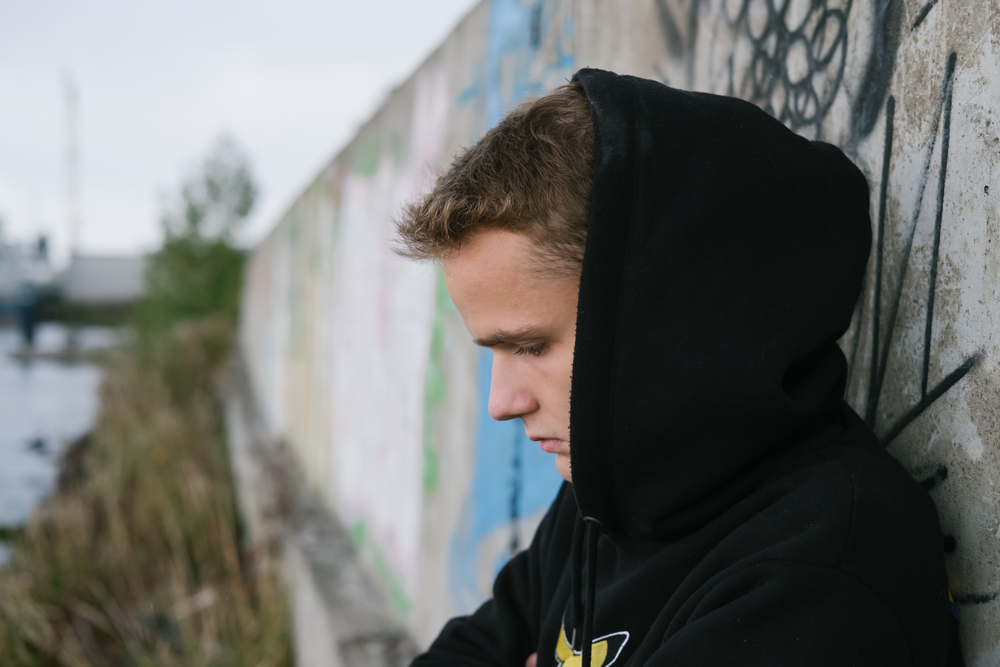Acknowledging tough times you went through during childhood isn’t about blaming your parents. It’s about understanding that how it felt to be loved as a tiny, vulnerable person literally wired your brain in specific ways. That wiring dictates how you look for safety and connection as an adult. This can be eye-opening, even painful at times, but knowledge gives you power to change unhealthy patterns, and that will serve you well throughout the rest of your life.
1. Your primary caregiver was inconsistently available.

Sometimes they were loving and attentive, other times withdrawn or dismissive. This unpredictable love made you learn to amplify your needs to get attention. As an adult, this might translate to anxiety in relationships, being super clingy, or fearing abandonment at the slightest hint of your partner pulling away, Psych Central explains.
2. You were parentified, and your emotional needs took a backseat.

Maybe you were comforting a stressed parent, or responsible for younger siblings. You learned your worth came from caretaking, not your own wants. This can lead to attracting emotionally unavailable partners as adults, unconsciously replicating that familiar dynamic where you’re giving all the support, getting little in return.
3. Your feelings were dismissed or ridiculed.

“Don’t be so sensitive!” or “Stop crying or I’ll give you something to cry about!” taught you to hide your emotions. As an adult, this makes you seem closed off, hard to read. You struggle to express vulnerable needs, impacting intimacy because your partner can’t mind-read what you’re withholding.
4. Love felt conditional, based on achievement, not simply being you.

Only got praise for good grades, winning at sports, etc.? This makes you see love as something to be earned, not a freely given birthright. Leads to adult perfectionism, imposter syndrome, and the fear that if your partner sees the real, flawed you, they won’t stick around.
5. Emotional safety came from becoming self-sufficient.

Your caregivers couldn’t be relied on, so you learned to handle everything on your own. This makes asking for help REALLY hard as an adult! You fear seeming needy, even when overwhelmed. Can lead to burnout in relationships, as your partner gets frustrated by your inability to let them in.
6. One or both parents were highly critical.

Nothing was ever good enough. This wires you for a harsh inner critic. As an adult, you engage in negative self-talk, have trouble taking compliments… because your early programming was that there’s always something wrong with you to be fixed.
7. There was a lot of chaos or unpredictability.

Parents fighting, substance abuse, unstable housing… these create chronic anxiety. You learned the world is unsafe. This translates to hypervigilance in adult relationships, always scanning for threats, struggling to relax, and fear of change even if it might ultimately be positive.
8. You experienced significant neglect, even when basic needs were met.

They fed you, but never played with you. This creates emotional distance. As an adult, you struggle with true intimacy, keeping even loved ones at arm’s length. May have satisfying friendships, but romantic relationships feel too risky, so you pull away before getting too close.
9. You were punished or shamed for expressing negative emotions.

Anger, sadness, even healthy boundaries got you in trouble, so you learned to stuff it down, put on a happy face. As an adult, this makes conflict terrifying, Verywell Mind notes. You avoid it at all costs, people-please rather than address issues, which leads to resentment and feeling like a doormat.
10. You were expected to perform or behave in a certain way to be considered lovable.

Were you ‘the smart one’, ‘the good girl’, etc.? This teaches you that love is transactional. As an adult, you have deep-seated fear of rejection if you don’t continue to perform to earn affection. Can lead to codependency, losing your sense of self in an effort to please your partner.
11. You internalized the message that your needs are a burden.

Maybe your parents were ill, overworked, etc. You learned to be quiet, undemanding, to make things easier for them. Adults who carry this become over-givers, always taking care of everyone else. They attract partners who happily take advantage, as that dynamic reinforces the false belief they deserve less than others.
12. There was a role reversal where you parented your parent(s).

This robs you of a carefree childhood. As an adult, you’re drawn to partners who need “fixing” or rescuing. Feels uncomfortable being the one receiving care, as that position is so unfamiliar. Leads to unbalanced relationships, attracting those who take advantage of your nurturing nature.
13. You experienced significant loss or trauma as a child.

Death of a loved one, witnessing abuse, serious illness… this makes abandonment your deepest fear. You may cling desperately in relationships, or preemptively self-sabotage them, convinced your partner will leave eventually, so better to get it over with.
14. You were praised for being independent and not needing anyone.

Asking for things made you feel weak. So you tough it out alone, even when struggling. This often leads to relationships with emotionally distant partners, as the dynamic mirrors that childhood experience of not having anyone to truly lean on.
15. One or both parents were controlling or manipulative.

Love came at the price of your autonomy. As an adult, you attract partners who attempt to dictate your choices, or you may become fiercely independent but have trouble truly trusting anyone and letting love in. Boundaries are key with this background!
16. You primarily witnessed unhealthy relationship models growing up.

Parents constantly fighting, cold towards each other… this teaches you that’s how love works. We subconsciously repeat what feels familiar, even if it hurts. This might mean attracting unstable partners, or recreating the same toxic dynamics you saw as a child.
17. You have a secure attachment style, but get into relationships with people who don’t.

Even with a healthy foundation, we often choose partners who trigger our old wounds. This is the body seeking “unfinished business” – a misguided attempt to heal those childhood hurts through adult love. The problem? It never works that way, we just end up more hurt.
Enjoy this piece? Give it a like and follow PsychLove on MSN for more!




